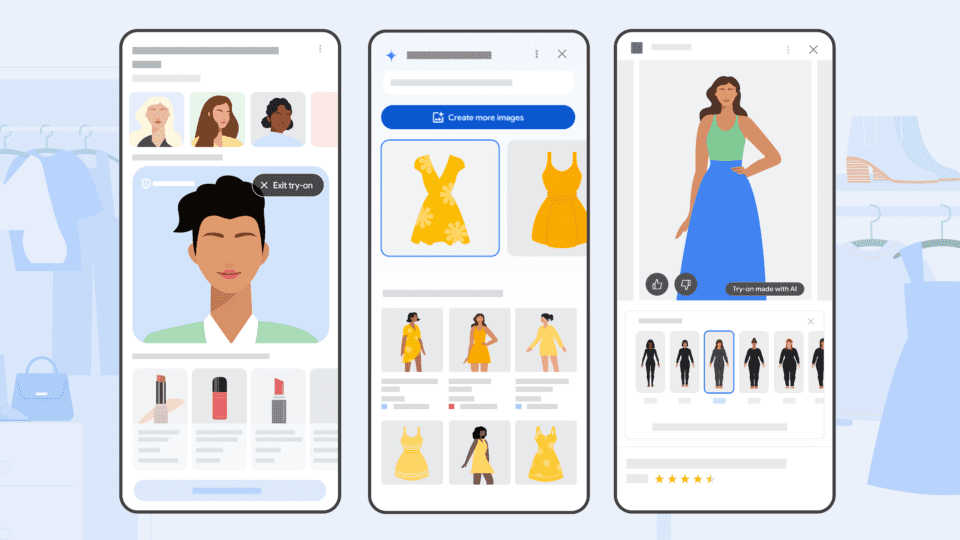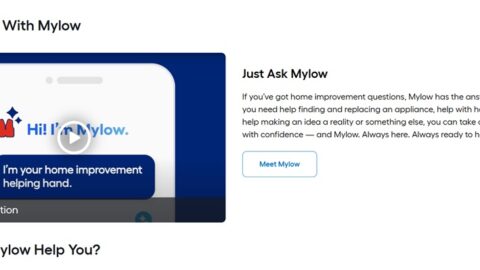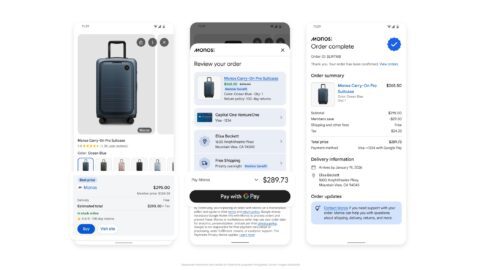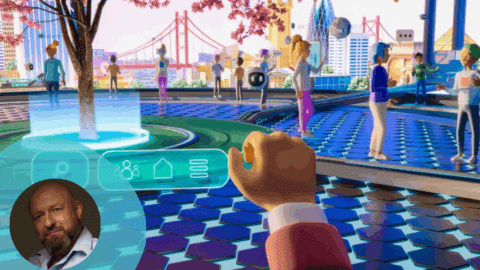By tapping into its Shopping Graph, Google’s dataset of 45+ billion listings of products for sale across the web, the company is enabling more immersive and contextual shopping experiences.
During an exclusive briefing with select media outlets, Google unveiled new AI-powered shopping features and capabilities, including a more robust visual search feature, trend-based makeup try-on features and virtual try-on for pants and skirts. These new features build on Google’s ever-growing portfolio of shopping behaviors, all aimed at making the search engine the ultimate commerce destination.
“The influence of AI on shopping habits is undeniable,” said Lillian Rincon, VP of Consumer Products at Google during the exclusive product briefing. “As consumers are finding new ways to embrace this technology, they’re also finding it can help them tackle problems that have made online shopping difficult.”
Connecting In-Mind Products with Tangible Search Results
More than half of consumers have struggled to find a specific item of clothing when they’ve had a vision in mind, according to Google research. We’ve all been there before, especially in instances where we have a particular style, silhouette or fabric pattern in mind. To get closer to those ideal search results, we tend to use highly specific language: nearly 20% of apparel searches have five or more words.
Google is helping shoppers streamline this journey, further bridging the gap between idea (or inspiration) and tangible product recommendations. Vision match, which initially launched as an experiment one year ago, is now available to all users in the U.S. Now shoppers can use descriptive language to define their ideal product and find viable — and shoppable — product recommendations. The feature also is available within Google Shopping to ensure easy access.
“Let’s say I’m in the market for a new summery dress,” Rincon said. “I know I like longer lengths, and I’ve been into happy floral prints, like sunflowers or daisies. I’m going to search for this concept, and [the tool] is generating these images that it has in mind.” As search results appear, shoppers can edit their queries in real time to refine their searches.
Expanding Makeup Try-On to Support Curation
Virtual try-on has been a big strategic priority for Google, especially in the beauty sector, for the past two years. The company partners with dozens of beauty brands that share augmented reality (AR) assets with Google, including CoverGirl, Dior Beauty, Fenty Beauty, Laura Mercier, Makeup by Mario and Pat McGrath.
Although shoppers have been able to use virtual try-on for individual products, the company is enriching the experience further, especially for the more than 50% of consumers who actively seek more trend-focused makeup inspiration and ideas online.
Now, after seeing their favorite celebrity on the red carpet, consumers can search beauty trends like “soft glam” and receive a full look that includes curated product recommendations from different brands. Google’s AI models use brand assets to curate these looks, enabling the virtual try-on feature. Shoppers simply search for a certain celebrity or makeup trend, click on the try-on icon and see how multiple shoppable products work together.
“When you’re trying to picture the whole look, it’s not always seamless,” Rincon explained. “It’s very personal, nuanced and often really tough to get right. That trending look that looks great on your favorite celebrity might not pop the same way on you. And now, powered by our latest Gemini models, we’re taking it a step further. What I love the most about this feature is that it’s starting to feel like we have a virtual makeup studio, right in your pocket.”
Tackling More Try-On Challenges
Finally, Google is striving to tackle one of consumers’ largest pain points while shopping online: finding pants that fit. In fact, Rincon revealed that 59% of shoppers say getting the right fit is their biggest challenge while shopping online.
Now, consumers can see how pants and skirts look before they buy them, simply by searching for terms like “skinny jeans” or “silk skirt,” clicking the try-on badge and choosing their desired model, which represents sizes XXS to XXL. Previously, this feature was available for men’s and women’s shirts, and dresses.
Consumers can shop various brands, including American Eagle, Everlane, H&M, Anthropologie, J.Crew, Banana Republic, Simkhai, Boden, Maje, Staud and Abercrombie. However, the company noted that merchants don’t need to do anything specific to get virtual try-on to work with their product listings.
“Shopping for pants online can be particularly challenging,” Rincon noted. “Trying to gauge, for example, the inseam length from just an image or two isn’t simple. Now we continue to improve our AI models, so we can help you try on bottoms, like skirts and pants, at home.”













